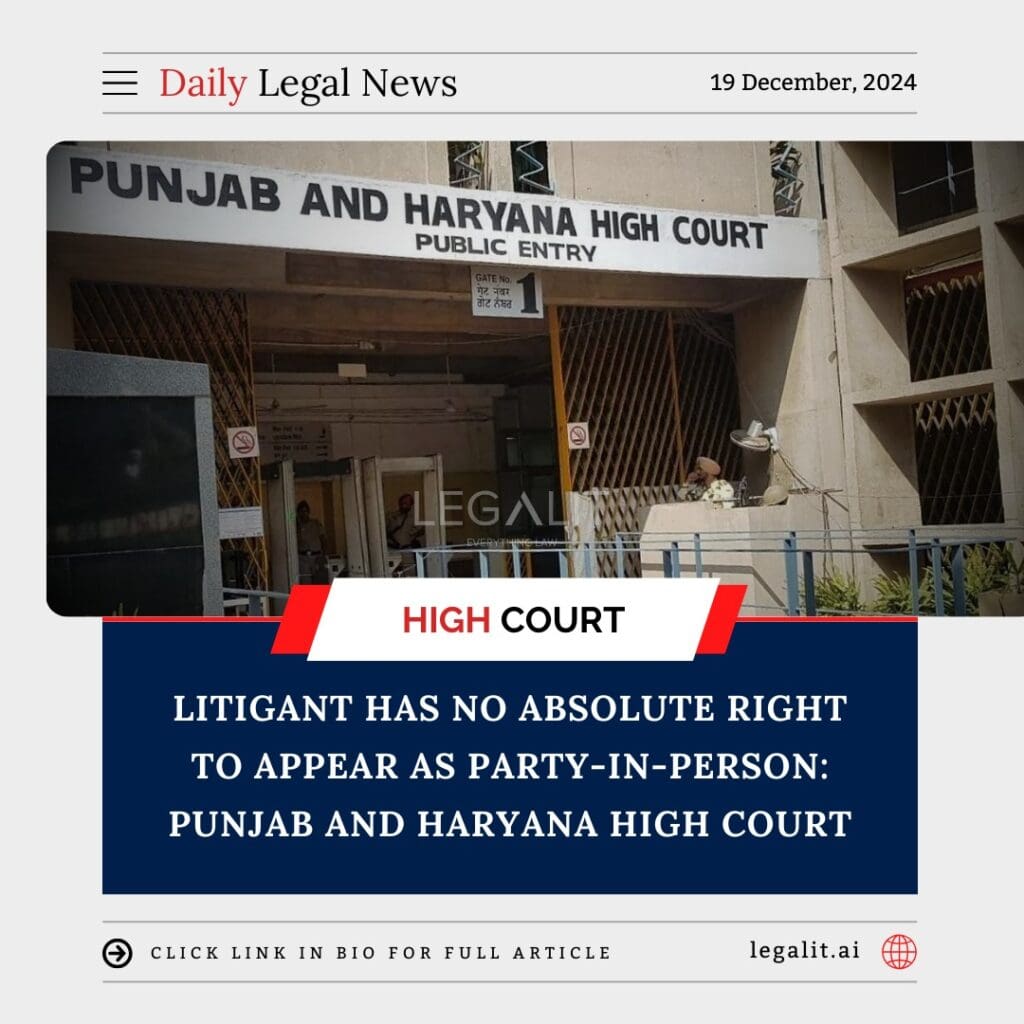
The Punjab and Haryana High Court has ruled that a litigant cannot claim an absolute right to appear as a party-in-person in legal proceedings. The judgment emphasizes that such a right is subject to the discretion of the court and must align with the interests of justice and judicial efficiency.
Background:
The case arose when a litigant insisted on representing himself as a party-in-person in a complex legal matter. The trial court denied his request, citing the need for legal expertise to handle the intricacies of the case. The litigant challenged this decision before the High Court, arguing that the right to self-representation is a fundamental right guaranteed under Article 21 of the Constitution of India.
Key Arguments:
- Petitioner’s Stand:
- The petitioner contended that denying him the opportunity to represent himself violated his constitutional rights.
- He argued that self-representation ensures that a litigant’s case is presented authentically and without external influence.
- The petitioner claimed that his knowledge of the facts and issues in the case made him the best-suited person to argue his case.
- Respondent’s Stand:
- The respondents highlighted that self-representation in complex cases could result in inefficiency and delay.
- They argued that the litigant lacked the legal expertise required to navigate procedural and substantive legal issues effectively.
- The respondents maintained that the trial court acted within its discretion to prioritize judicial efficiency and fairness.
High Court’s Observations:
The High Court upheld the trial court’s decision, stating:
- The right to self-representation is not absolute and must be balanced against the interests of justice.
- Courts have the discretion to assess whether a litigant’s self-representation would impede the efficient and fair administration of justice.
- Self-representation in complex cases often places an undue burden on the judiciary and may result in prolonged proceedings.
Implications of the Judgment:
The ruling establishes important guidelines regarding self-representation:
- Courts can deny party-in-person requests if the litigant’s lack of legal expertise is likely to obstruct justice.
- Legal representation by qualified advocates remains essential for ensuring fairness in intricate cases.
- Litigants must demonstrate sufficient knowledge and competence to represent themselves effectively.
Broader Context:
This judgment underscores the balance courts must maintain between individual rights and systemic efficiency. While self-representation is an important facet of access to justice, it cannot come at the cost of compromising judicial processes or the rights of other parties involved.
Conclusion:
The Punjab and Haryana High Court’s decision reaffirms that self-representation is not an unfettered right. The ruling ensures that courts retain the discretion to make case-specific decisions to safeguard the integrity and efficiency of the judicial system.